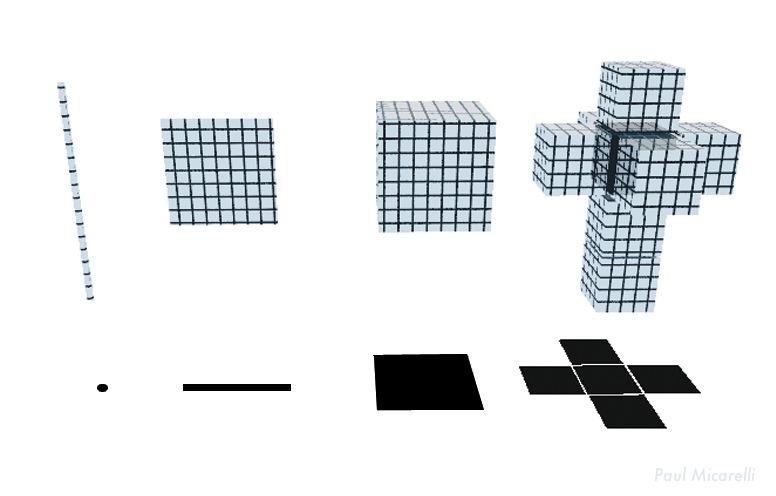I finally got around to playing through
Bioshock Infinite, and it was a solid addition to the iconic series.
Previously, I reviewed the first Bioshock, & I've also played the sequel. This was a similarly memorable game, that took the theme in a new direction, but was still consistent with the previous titles.
The Monkey Buddha Archives:
The Bioshock games are first-person shooters, but they have deep, immersive storylines that lead the player to question his own perspective and moral judgments.
What I especially like about this series is its look at the shortcomings of different political ideologies, when they are actually applied to society.
In the first two Bioshock games, the setting was an underwater city called "Rapture". This was supposed to be an
art deco-style Libertarian utopia, founded by business magnate Andrew Ryan in the 1940's. He & the city's other founders were Objectivists who wanted to escape government control, so the "Free Market" could reign supreme.
As anyone with a rudimentary understanding of the real world could predict, a Libertarian 'paradise' will quickly devolve into a hellhole, as the power of selfishness and greed are allowed to run rampant. The city of Rapture falls apart, due to the scientific discovery of "plasmids" that grant their users superhuman powers. These powers led to class warfare among the inhabitants of Rapture, and a fatal rivalry between Andrew Ryan and Frank Fontaine, another unscrupulous businessman.
In
Bioshock: Infinite, the setting is Columbia in the year 1912. This is a city that is literally floating in the sky, due to a powerful anti-gravity technology.
Columbia was founded by Zachary Comstock, who wanted to break away from the United States, while retaining an ultra-conservative vision of America. The complete merging of religion and nationalism create a right-wing dream world, where today's Tea Party patriots would feel right at home.
In Columbia, "Father" Comstock styles himself as a political leader & religious prophet, the U.S.'s Founding Fathers are revered as demi-gods, patriotic propaganda is everywhere, & the city has a traditional feeling that gives the overall impression of "the good ol' days".
Not far into the game, however, you begin to see through the facade of the image of Columbia that Comstock has built up. It is actually a place of elitism & racial segregation, in which all non-whites are officially recognized as second class citizens, or worse.
The resulting social tensions have manifested themselves in the form of the revolutionary group "Vox Populi" fighting to bring equality to Columbia. At first, it's easy to sympathize with the Vox, in contrast to Comstock's dystopia. However, it later becomes clear that having the Vox Populi take control would also lead to its own disastrous consequences.
The ultimate message here is one that I try to emphasize all the time, when talking about politics & government: No matter who's running things, human society is always going to be f*d up.
You play the game as Booker DeWitt, a detective who has incurred a large debt. To pay this debt, he is recruited to go to Columbia and rescue a girl named Elizabeth. She is apparently Comstock's daughter & heir, and she has the ability to open "tears" in the fabric of space-time. These tears allow observation & interaction with alternate universes.
A sly Star Wars reference,
as Elizabeth opens a space-time tear into her dream destination, Paris.
This scientific aspect of the game, which deals with multiverse cosomologies, quantum physics, and relativistic concepts, was unexpected and the most interesting for me.
As the game progresses (especially at the end) the idea of infinite parallel universes, with countless versions of oneself, comes to the forefront. It leads to mind-bending plot twists and plenty of points to ponder long after the game is over. The theoretical physics in the plot also answered a question that bothered me before I even started the game:
"Why did they call this game 'Infinite'?!?!"
On a functional level, the gameplay mechanics are a continuation of the original Bioshock games. You carry a weapon in one hand & have another hand that can emit various powers you discover as you progress.
Unlike the claustrophobic underwater setting of Rapture, Columbia is an open air city with awesome visual presence among the clouds. In this game, you can hook onto sky rails and soar around certain areas. It takes some getting used to, but is a pretty cool feature. Despite the open setting, the game is fairly linear, with a set succession of missions and limited area to travel through for each stage.
Although the combat on 'normal' difficulty was sporadic and there were some minor issues I had with the game, overall it was very engaging. As is characteristic of major productions like this, the artistic vision and attention to detail in the game is amazing. What really made the game stand out for me, though, was the thought-provoking story elements, dealing with the unlikely combination of political issues and the theoretical physics.
I definitely recommend Bioshock Infinite for a look at the conceptual heights to which a video game can aspire, while maintaining exciting FPS & role-playing elements.
• The Monkey Buddha's official rating: 8.25














